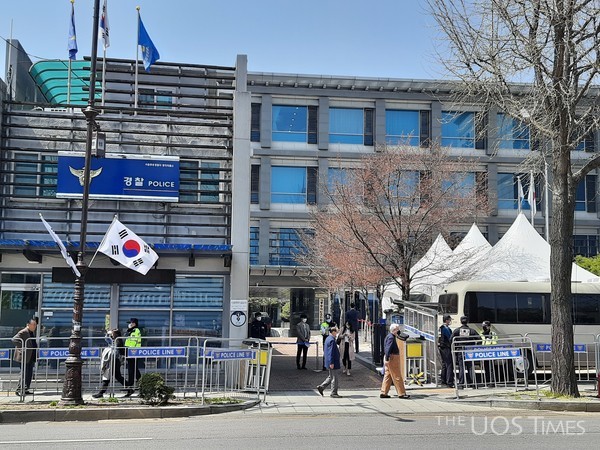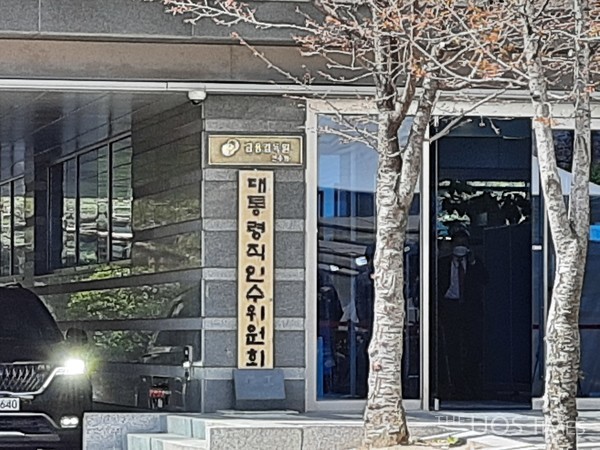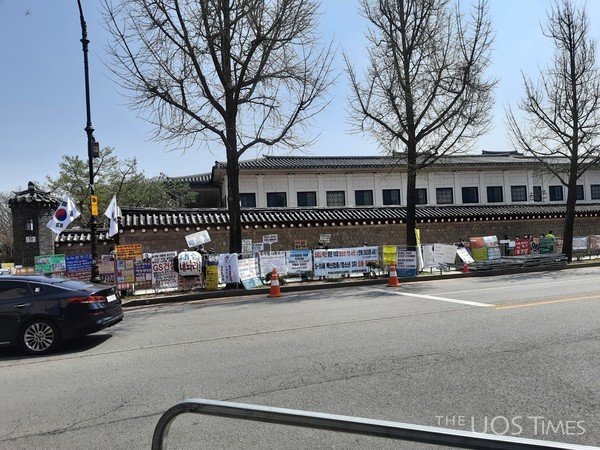South Korea is about to set sail in a new direction under newly elected president Yoon Suk-yeol. Korea held its 20th presidential election on March 9, 2022. Because by law presidents are allowed to hold office for a single five-year term, the current president Moon Jae-in was not allowed to run for a second term. Consequently, the Democratic Party of Korea (DPK), the ruling party, had chosen Lee Jae-myung as its candidate, whereas in the People Power Party (PPP), Mr. Yoon, an ex-prosecutor, emerged as the main opposition candidate.

The DPK is a center-left-oriented party that was in power for the past five years, coming to power after the impeachment of former president Park Geun-hye, the first female president in Asia. The DPK had criticized the then-ruling Saenuri Party government for its poor response to the Sewol ferry disaster and its attempts to downplay government culpability.
The PPP is a center-right to right-oriented party founded in 2020 with the merger of the Liberty Korea Party (the former Saenuri Party), New Conservative Party, Onward for Future 4.0, Future Korea Party, and other minor parties and political organizations. It became the main opposition party for the 2021 by-elections, which it managed to win by racking up successes against the DPK in crucial cities like Seoul and Busan.
Lee Jae-myung, the candidate of the DPK, used to practice as a lawyer, who then served as the mayor of Seongnam for eight years and governor of Gyeonggi Province for three years before running for the presidency.
Mr. Yoon, the newly elected president who will assume office on May 10, is a former prosecutor who played an important role in prosecuting former presidents Lee Myung-bak and Park Geun-hye’s abuses of power. He also served as the Prosecutor General of Korea from 2019 to 2021.
By law, the newly elected president must establish a takeover committee to smooth the transfer of power from the previous president before taking power. All expenses of the transition committee are supported by the government.
The 20th Presidential Transition Committee was established with 24 members on March 18, only nine days after the election. Ahn Cheol-soo, another candidate from the People’s Party who withdrew from the election and endorsed Mr. Yoon, was appointed chairperson of the committee. The president elect is scheduled to attend meetings of the committee at least twice a week on a regular basis. The committee consists of seven subcommittees: planning and coordination, foreign affairs and security, political affairs and judicial administration, economy 1 (economic policy, macroeconomics, finance), economy 2 (industry and employment), science technology and education, and social welfare and culture, on which a total of 184 people serve. However, agendas included in the previous transition committee, such as women and unification of South and North Korea, disappeared from this committee.
The president of Korea is elected via a single-round plurality voting system. This year, 44 million citizens voted in the election, and Mr. Yoon emerged victorious with a slim margin of 200,000 votes. The turnout for this election is recorded as 77.1 percent, which is higher than the world average. President-Elect Yoon faces various problems, such as social and economic problems caused by COVID-19, antifeminism, and the housing crisis.

Moving the Blue House
One of the most controversial agendas is moving the presidential office. Currently located in a relatively secluded place compared to other governmental buildings, the current presidential office and residence, the Blue House, has received some criticism. First, in light of security issues, the Blue House is located in an isolated location surrounded by mountains. However, after the democratization of Korea, such isolation caused a lack of communication between the president and citizens. Second, the Blue House is thought to be too large. The Blue House is not a single building, but a group of buildings located within an area of 253,505 square meters. In fact, it takes about a 10-minute walk from Yeomingwan, the offices of the Presidential Secretariat, to the Main Office Building, where the main presidential office is located. This dispersion seems to hinder close cooperation between the staff and the president.
As a solution to these problems, Mr. Yoon plans to relocate the presidential office to Yongsan, where the Ministry of National Defense (MND) is currently located. The final movement plan is to empty the MND building for the presidential office and the Presidential Secretariat office to move in, while the MND will move to the nearby Joint Chiefs of Staff (JCS) building and the JCS to Namtaeryeong, where the wartime command and control facility is located. Also, Mr. Yoon plans to build a second presidential office in the Multifunctional Administrative City, located in Sejong City.
For the first time since the Blue House was completed in 1948, Korea will see its president relocating his office. Thus, there are some concerns on account of the economic burden the movement will impose. An estimated 50 billion KRW will be needed to move the presidential office and remodel the presidential residence in Hannam-dong, and there will be additional expenses incurred by the relocation of the MND and JCS. Kim Byeong-ju, a member of the National Assembly affiliated with the DPK, insisted that the cost would be up to 1 trillion KRW. The MND reported to the 20th Presidential Transition Committee that the extra expenses are estimated to reach approximately 500 billion KRW.
Abolishment of the Ministry of Gender Equality and Family
During his campaign, Mr. Yoon made abolishing the Ministry of Gender Equality and Family (MOGEF) a central pledge of his campaign, saying that there is no systemic gender discrimination in South Korea. The fate of the MOGEF has thus been cast into doubt since Mr. Yoon was elected president. He stated that the role of the gender ministry is already “outdated” in Korea and vowed to establish a new organization in its place to deal comprehensively with the issues related to children, families, and the demographic crisis. Even after the presidential election, Mr. Yoon and the transition committee reaffirmed their intention to abolish the MOGEF, saying that doing so was a major promise.
However, others argue that it will not be easy for the upcoming Yoon administration to remove the MOGEF from the governmental organization, as doing so would require parliamentary approval. The National Assembly is now controlled by the DPK, and a majority of members have expressed opposition to abolishing the ministry.
Transition Committee Chairman Ahn said that the shaping of the government must be done in line with the current government organization, and that candidates for the MOGEF will also be announced in this structure. Mr. Yoon has a plan to first appoint the minister of MOGEF, who will investigate its internal problems and lead the reorganization of the ministry.
Other Controversies over Housing Policies and COVID-19
Among the strongest criticisms of President Moon are those that targeted the failures in his housing and real estate policies. Some have even said that his failure to address housing problems led to Lee Jae-myeong’s loss. Therefore, there is a nationwide expectation for Mr. Yoon to solve the problems of skyrocketing housing prices and increased housing burden for the middle class. In this regard, the first legislation proposed by the PPP after the election was to relax the safety threshold on reconstruction projects, which would make it easier for old houses to be reconstructed and to increase household reception numbers. However, some have argued that increasing reconstruction projects will result in residential instability among people currently residing in old and unsafe houses, who also are likely to be a vulnerable social group in the economic sense. The first reason is the temporary housing shortage caused during the reconstruction, and the second is reconstruction itself overly increasing the house price consequently overburdening the people. Mr. Yoon also pledged to supply 2.5 million houses across the country, including 1.5 million in the Seoul Metropolitan Area, to ease the housing problem of Korea.

With endemic conditions around the corner, 20th Presidential Transition Committee Chairman Ahn proposed a “nationwide COVID-19 antibody census” for scientific disease control. On April 6, protests were held across the street from the 20th Presidential Transition Committee against the idea. One of the protesters said in a brief interview with The UOS Times, “The choice of being vaccinated or not should never be forced. Chairman Ahn is trying to violate people’s rights over their own body.”
Seo-o-nam
The Transition Committee has the nickname “Seo-o-nam,” which is an abbreviation of the phrase “committee dominated by male graduates of Seoul National University in their 50s.” The Transition Committee consists of 24 members, of whom 13 are Seoul National University graduates with an average age of 57.4 years and among whom are no young men in their 20s and 30s and only four women. It also includes many former government bureaucrats who worked in the Lee Myung-bak and Park Geun-hye governments. Some believe that the lack of diversity is a problem, while Mr. Yoon considers it a result of meritocracy prioritizing experience and skill.
In his first speech as the president-elect, Mr. Yoon promised Korean citizens a “politics of integration without splitting the people.” Having earned less than half of the people’s approval, keeping this promise seems to be an urgent matter in light of the upcoming local elections in June 2022.
Another of his challenges as a national leader will be to work with a minority government for the next two years. The DPK is currently holding 172 of the total 300 seats in the National Assembly and is going to be the largest opposition party during Mr. Yoon’s term of office. The DPK holds a majority, while the PPP has only 110 seats. This combined with the divisions in public opinion have raised concerns that “he will fall into the position of ‘inauguration duck’ rather than lame duck,” as Yoon Ho-jung, co-chairman of the DPK Emergency Committee, put it, adding, “Mr. Yoon will be the next Donald Trump of Korea,” comparing the strong public objection Trump suffered early in his term of office with Mr. Yoon’s.
Koreans in their 20s, like any other generation, are also paying close attention to the next government. In a brief interview with The UOS Times, Yoo Hong-ju (Dept. of Science in Taxation, ’18) said, “I believe Korea today lacks a sociocultural basis for students who major in the humanities or social sciences to continue their academic pursuits.” He added, “I hope the next president will set it as a major agenda for the younger generation widening the opportunities for those students. I think pluralism in academics is crucial for Korea to leap to developed country status in the cultural sense.” There have been many demands like this directed toward the incoming government by students regarding many issues such as gender equality, military service, and the population cliff. Although Mr. Yoon is expected to suffer political turbulence from the wide divisions in public opinion, The UOS Times urges the president-to-be to provide Korea with the integration he promised.
Read more of our recent coverage of the academic imbalance of Korea.

